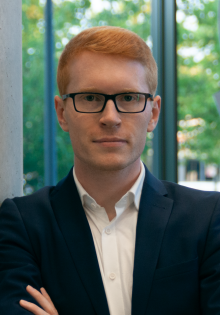Energy system modeling
Understanding and modeling energy systems is crucial for the design and operation of sustainable energy systems. This lecture provides a comprehensive introduction to the methods and tools for analyzing, optimizing, and evaluating such complex energy systems. In addition to an introduction to energy system technologies, the fundamental concepts of modeling are covered at the beginning of the lecture. Following this, parameters, variables, and input data, which form the basis of any model creation, will be discussed. A central topic of the lecture is mathematical optimization. Various optimization procedures will be learned step-by-step and applied to real energy systems. Besides technical aspects, economic and ecological factors also play a particularly decisive role. But how reliable are our models? Uncertainties in energy systems must be included, and methods for validation and verification of models will be learned. Spatial and temporal dimensions also play a major role—after all, energy flows change significantly depending on location and time of day. Finally, common software solutions used in practice for modeling energy systems will be presented.
The lecture combines theory with practical applications and equips students with the necessary tools to analyze, design, and build their first own models of complex energy systems.

Learning Objectives
In this course, students will acquire a holistic understanding of energy system modeling. They will learn to model individual energy technology components and gradually integrate them into more extensive energy systems. A special focus is placed on the practical implementation of the concepts learned. In accompanying practical exercises, students will develop models of energy systems, simulate and optimize them, thereby deepening their understanding of the modeling processes. To achieve this, students will acquire fundamental programming skills in Python as well as common Python packages (e.g., pandas, matplotlib, pyomo, numpy), which they will use for the modeling, analysis, and optimization of energy systems. They will learn to create simulations in Python, visualize the results, and analyze their models.
| Docent | Prof. Dr.-Ing. Henning Meschede |
| Study programme | M.Sc. Electrical engineering |
| ECTS | 6 CP |
| Workload | 180 h |
| Turnus | Wintersemester |
Further Information


